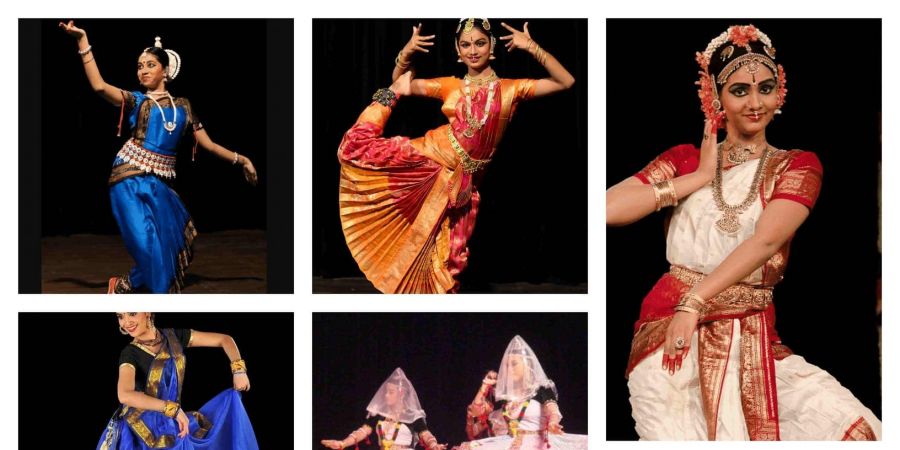

1.BHARATHANATYAM
The Bharatanatyam dance style is the oldest and most traditional classical dance form in India, having its roots in Tamil Nadu. It was formerly known as Sadhir Attam. Temple dance known as Bharatanatyam narrates tales from several Hindu scriptures. Past Events When did Bharatanatyam start? The ancient Hindu Sanskrit text Natya Shastra, which discusses performing arts, contains the fundamentals of Bharatanatyam. According to archaeologists, the work was originally compiled somewhere between 200 BCE and 200 CE.
2.KATHAK
Uttar Pradesh is the birthplace of the Kathak dance style. It combines narrative telling with the worship of gods. The combination of grace, hand gestures, body position, and eye movements creates a graceful appearance for Kathak. A Kathak dancer will begin a performance by bowing to the guru and praying for God's blessing. The dancer then continues with the dance. A variety of classical instruments, including the harmonica, tabla, manjira, and sarangi seeta, are used in the music that goes with a Kathak performance.
3.ODDISSI
Similar to Bharatanatyam, this Odisha-born dance style is likewise a temple dance. Odissi's poetry has made it famous throughout the world. The Odissi performance's "bhakti bhava" element is bizarre. It started off as temple performances in Odisha and eventually moved to stages. The adoration of Lord Jagannath is the main topic of the dance style, and the garments represent a lesson from Hindu mythology. The sun god, Vaishnavism, Shakti, and Lord Shiva are the sources of inspiration for the other themes in Odissi.
4.MANIPURI
This dancing style, which originated in the Indian state of Manipur, is based on the 'Raasleela' myth, in which Lord Krishna and Radha dance together. Manipuri is a type of dance that includes singing and dancing and is regarded as holy since it seeks inspiration from Lord Krishna. Manipuri was enlarged even more by incorporating the "Shaivism" element. Manipuri, which uses dance to represent the spiritual ideals of Hinduism, is typically performed at religious festivals and events like weddings. The male dancer is dressed in a dhoti, and the female dancer is dressed as a Manipuri bride.
5.MOHINIYATTAM
Mohiniyattam is a traditional dance from Kerala that combines dramatic acting, dancing, and precise footwork. Its name is derived from the terms "mohini" and "aattam," which refer to a woman's elegant movements. It means "dance of the enchantress" when translated literally. As a result, Mohiniyattam is thought of as an extremely elegant dance style that is performed by women. This dancing style's primary subject is devotion to God. Dancers use their bodies to convey this through their soft shapes and motions. Furthermore, in Mohiniyattam, hand movements known as mudras are significant. A hallmark of the dancing style is when dancers embellish a white saree with a golden brocade.
6.KUCHIPUDII
The Kuchipudi hamlet in the Andhra Pradesh state is the source of the name of this Indian dance style. Kuchipudi, like the other classical dance styles on this list, is performed in temples.
7.KATHAKALI
Kerala was the birthplace of the dance play Kathakali in the 17th century. It combines dance, music, drama, and devotion. The majority of Kathakali's themes draw inspiration from Indian epics.
8.SATTRIYA
This renowned dancing style originated in Assam. There are numerous variations of Sattriya, including Gopi Prabesh, Gosain Prabesh, Chali, Mati Akhara, Jhumura, Krishna Nritya, and Nadubhangi.
